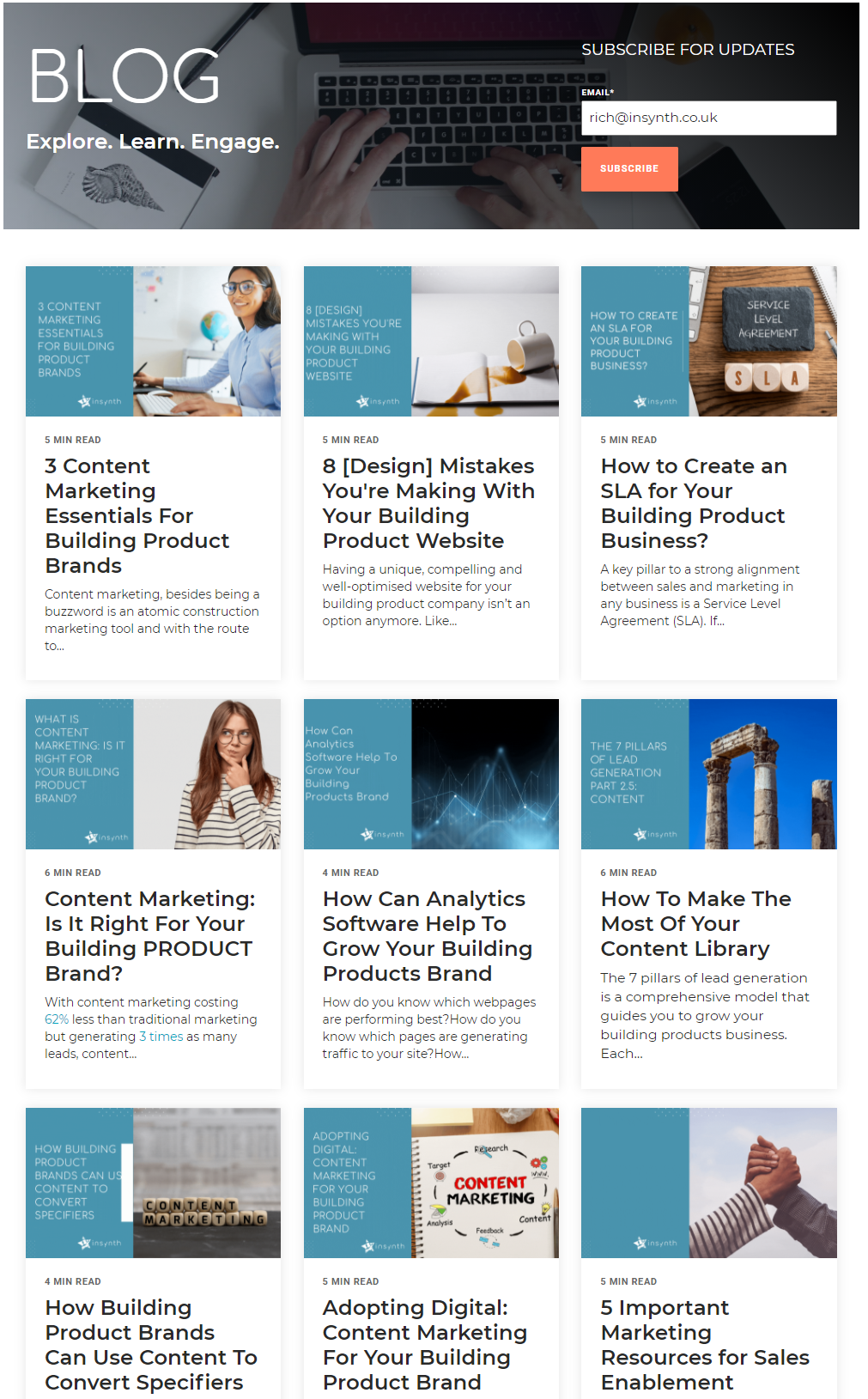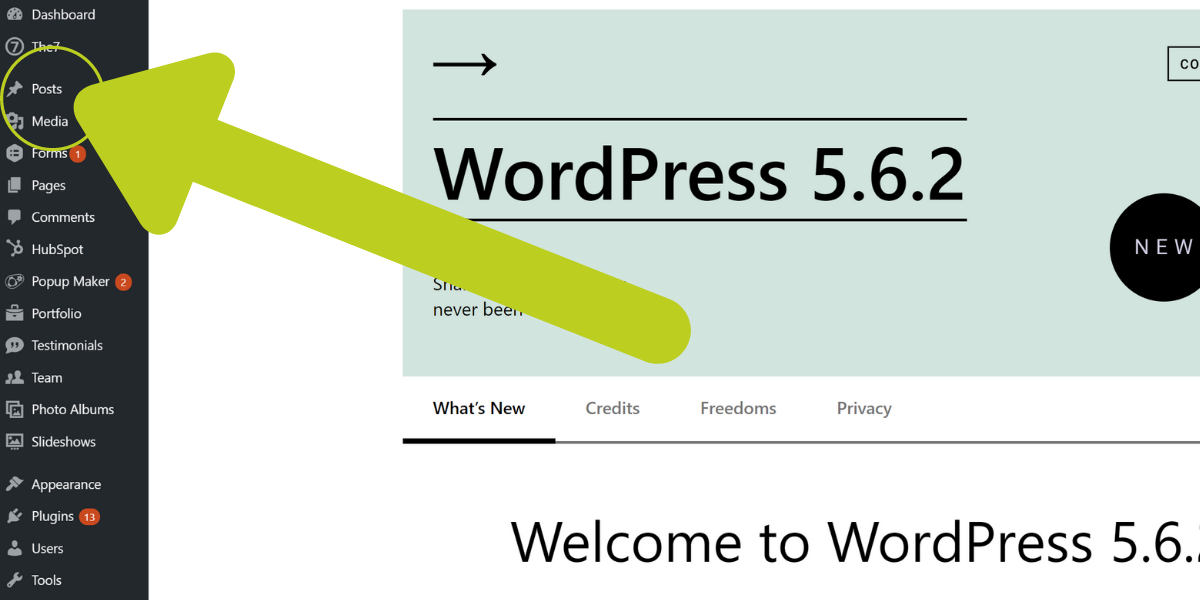![[Building Product Businesses]: What Is A Blog?](https://www.insynth.co.uk/hubfs/Copy%20of%20Copy%20of%20Copy%20of%20Is%20Your%20Website%20Set%20Up%20To%20Attract%20Specifiers_.gif)
In the world of digital marketing, the word “blog” has been bandied around for several years now, and professionals in the field just assume that everyone knows what one is.
Whilst writing blogs has been a successful content marketing tool used by many industries, we’ve found that there are still some misconceptions amongst professionals within the building products and construction industry.
So, for my next series, I’ll be taking it back to basics. We’ll be exploring what blogs are (and what they’re not!), we’ll be looking at how to write a blog, what they look like and how you can get the most out of them.
In this post, we’ll be covering,
What is that blog thing people keep going on about?!
Read on…
So, What Is A Blog?
By definition, a blog is a regularly updated website or webpage. It can be used for personal use or to fulfil a business need.
Here’s a screenshot of the Insynth blog:

Each time somebody publishes a blog post (more on this later), this page gets updated.
As you can see, it’s almost like a virtual bookshelf where people can view the ‘header image’ – which is the digital equivalent of a ‘front cover’ – and choose a blog post that piques their interest.
What Is A Blog Post?
If a blog is the bookshelf, then a blog post is the individual ‘book’ that you pick from the shelf. This virtual ‘book’ will help you to learn a bit more about a key area/topic.
And that’s it. It’s as simple as that.
But what does it look like on your building product website? How do you create a blog? How many words should you write? What should you write about?
These are all things that you need to understand in order to truly harness the power of ‘blogging’.
How to Create a Blog Post in WordPress
Many building product websites have been built using the WordPress CMS, so that’s where I’ll begin.
When you login to your website’s WordPress area, you’ll be greeted with a dashboard that looks similar to this:

On the left-hand side of the screen, you’ll see an area that says ‘posts.’ From there, you can begin writing a blog post.
Depending on how your website is build, these posts will be listed under the ‘news’ section or the ‘blog’ section of your website.
Other CMSs will, or course, look different, but the principals still apply. Always look for ‘posts’ on your CMS interface.
What Is The Purpose Of A Blog Post For Your Building Product Business?
We’ve looked at the practical characteristics of a blog post and how you can publish one to your website, but in order to truly get the most out of them, you’ll need to understand how to do it properly.
And firstly, you need to understand the purpose of a blog post…
A blog post serves two key functions:
- To drive organic traffic to your website (and to convert those visitors into leads)
- To demonstrate expertise on a particular topic (building trust and authority)
Every single blog post you write should fulfil those two key aims, however, getting those two things right takes a certain degree of knowledge and skill, which we aim to unpick throughout this series.
Conclusion
Learning the basics is key to a deep understanding in the long-term. It’s virtually impossible to pick apart the true definition of a blog post in 600 words, so I’ve deliberately kept this post high-level.
Starting a blog can be quite daunting, particularly when you consider the time it takes to give it a good go. It can also be discouraging as you won’t see instant results. Blogging is a long-term strategy.
Here are some simple tips to help you in the short-term:
- Post regularly. Consistency is key.
- Stick with one topic at a time.
- Use plenty of white space – to aid user experience
For any further support on blogging, you can always connect with me on LinkedIn or send over an email to rich@insynth.co.uk.
About Insynth
At Insynth we deliver a predictable flow of leads, customers, and specifications for building product brands through our inbound marketing approach, proven to reach a technically demanding audience.
We use the latest marketing techniques such as construction inbound marketing, to equip building product companies to grow sustainability in this era of digital transformation.
As the only HubSpot certified agency to major in construction marketing. We have a proven formula of bringing a variety of functionalities together including CRM Implementation, Web Design, Sales Automation, SEO, and Email Marketing to achieve your ultimate aim: Growing your business and gaining new specifiers and customers.

